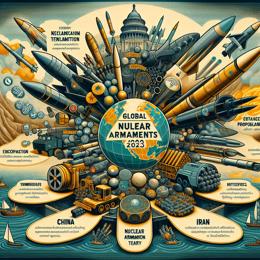Image created by AI
Palestinian PM Shtayyeh Offers Resignation Amid Escalating Tensions and US Pressure
In a dramatic turn of events, Palestinian Prime Minister Mohammad Shtayyeh has tendered his resignation to President Mahmoud Abbas against the backdrop of heightening hostilities and political pressure. Shtayyeh's action is a response to the deadly conflagration in Gaza, which he describes as a "genocide and starvation," and the spiraling violence across the West Bank and Jerusalem.
The Palestinian leader acknowledged that the formidable challenges confronting the Palestinian territories necessitate the establishment of fresh governance and political alignments that recognize the complexities of the current state of affairs in Gaza. He underscored the indispensable requirement for a unified Palestinian front and sovereignty across the geographical span of Palestine.
This pivotal step follows mounting U.S. pressure directed at Abbas to overhaul the Palestinian Authority (PA), with an ultimate objective of devising a political framework capable of effectively administering a sovereign Palestinian state post-conflict. Nonetheless, Israeli Prime Minister Benjamin Netanyahu has consistently dismissed the possibility of the PA under Abbas assuming governance over Gaza or a putative Palestinian state.
Israel's posture was crystallized when the Knesset demonstrated a robust majority against the concession of a Palestinian state. Netanyahu asserted that such a move not only undermines peace prospects but also imperils Israel's security. The Palestinian Ministry of Foreign Affairs countered by asserting that international recognition of a Palestinian state, as well as United Nations membership, was not subject to Israeli approval.
The recalcitrance on both sides is set against a backdrop of decades of atrophied progress following the Oslo Accords, further complicated by the International Court of Justice's current evaluation of legal arguments from around 50 countries concerning Israel’s occupation of the West Bank.
Recently, Israeli Finance Minister Bezalel Smotrich, undeterred by international censure, revealed plans for the construction of over 3,300 new homes in West Bank settlements, a move that elicited disappointment from U.S. Secretary of State Antony Blinken. Blinken emphasized that such settlement expansions are antithetical to the pursuit of a lasting peace and represent a departure from long-standing bipartisan U.S. policy and international law. He also stated that, according to the U.S. administration, these settlements serve to undermine, not fortify, Israel's security.
Amid these contentious political dynamics, violence continues to surge in the West Bank, with recent attacks by Hamas in southern Israel resulting in catastrophic casualties. In the ensuing Israeli military response, the Gaza Strip's Ministry of Health reports disproportionate civilian deaths. Concurrently, Palestinian health officials report hundreds of fatalities in the West Bank due to Israeli military actions during the same timeframe.
The unfolding situation raises immediate concerns about the future of Palestinian governance and peace in the region. Shtayyeh's resignation shines a spotlight on a crisis that underscores the dire need for renewed efforts towards reconciliation and a sustained international dialogue geared towards building a peaceful coexistence within the disputed territories.
#GOOGLE_AD










